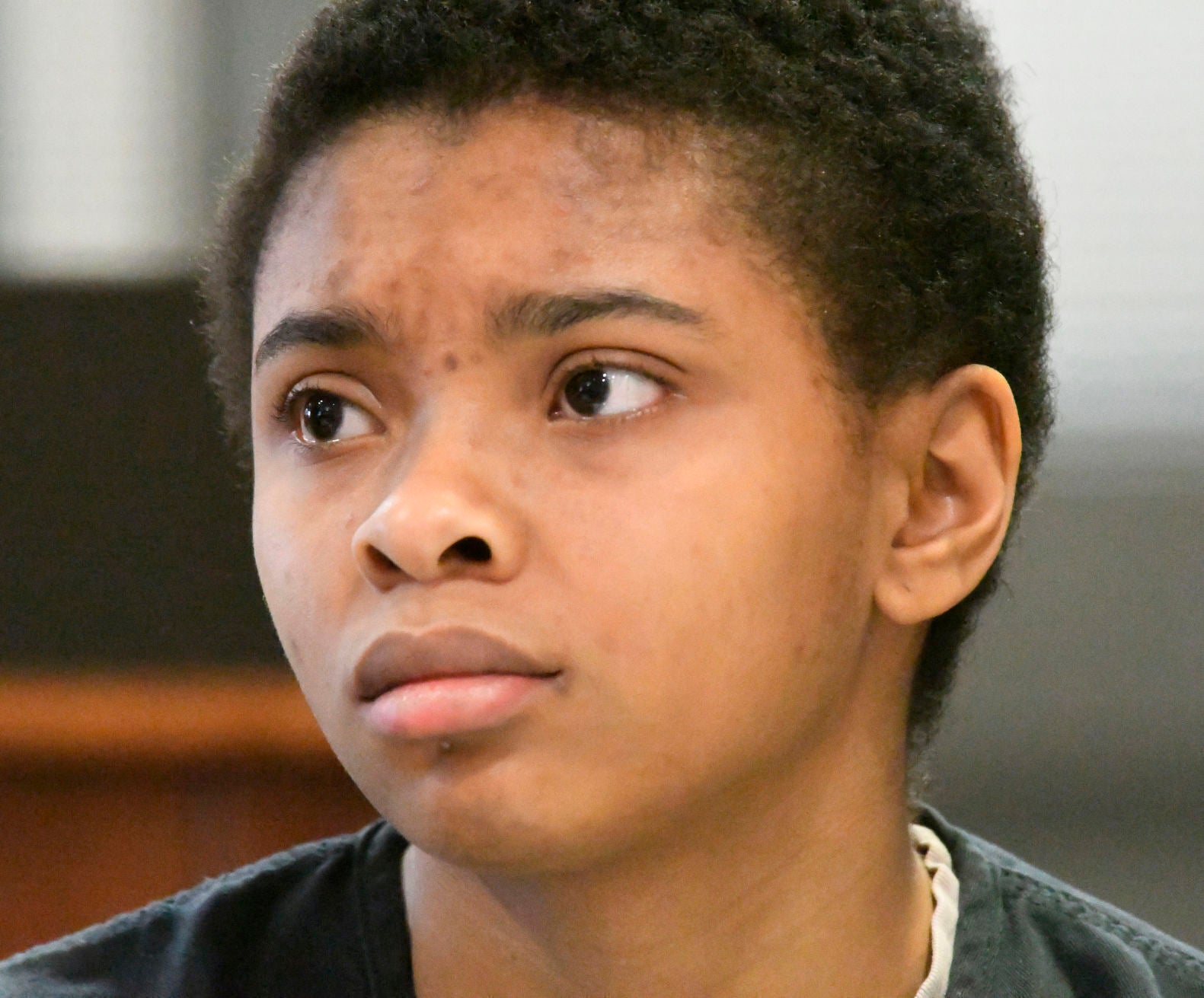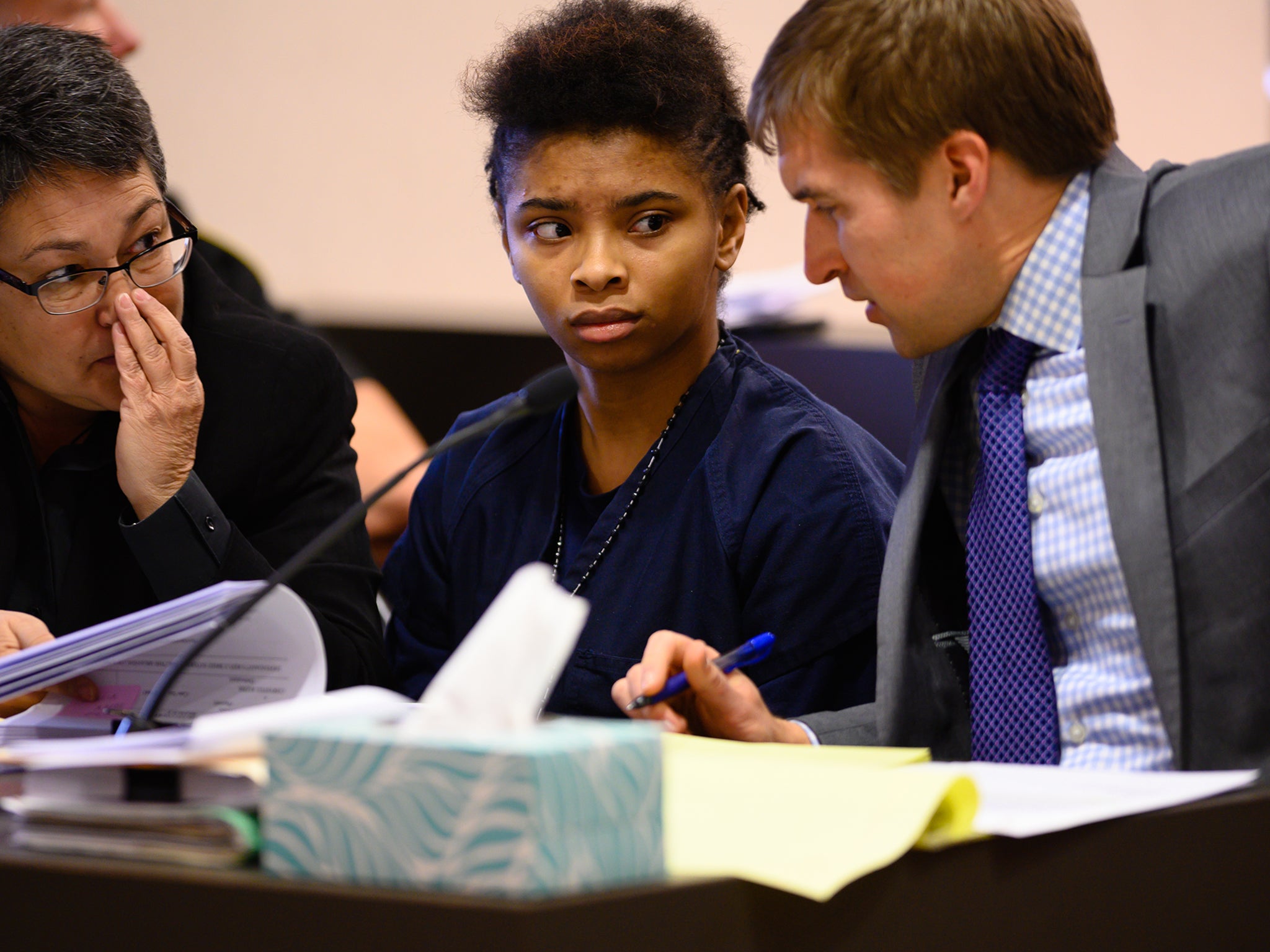Court rules teenager who killed her sexual abuser could be acquitted under landmark defence
Sex trafficking can be a defense for homicide, says a Wisconsin court

A Wisconsin woman who killed her sexual abuser when she was 17 years-old has won the right to argue her actions were justified.
In a 4-3 decision, the state’s Supreme Court ruled that sex trafficking could be used as a defense for homicide in the case of Chrystul Kizer.
Ms Kizer, now 22, must prove that her decision to kill Randall Volar III in 2018 was connected to being sex trafficked by him.
Chrystul Kizer shot and killed Volar in Kenosha, Wisconsin, in June 2018. She is currently awaiting trial on five felony charges, including first-degree intentional homicide.
Prosecutors say Ms Kizer planned to kill Volar because she wanted to steal his BMW. But her attorneys argue that she acted in self defence after suffering years of sexual abuse at Volar’s hands.
“Chrystul Kizer deserves a chance to present her defense and today’s decision will allow her to do that,” Kizer’s attorney, Katie York, said in a statement after Wednesday’s decision.
“While the legal process on this matter is far from over, we, along with Chrystul and her family, believe the decision today affirms the legal rights provided by Wisconsin statute to victims of sex trafficking facing criminal charges.”

The decision that could help define the limits of legal immunity for trafficking victims nationwide.
Ms Kizer says she was sexually assaulted by Volar who sold her to others for sex. According to court documents, Ms Kizer put a gun in her bookbag in June 2018 and told her boyfriend that she was going to shoot Volar because she was tired of him touching her.
She travelled from Milwaukee to Volar’s home in Kenosha, shot him in the head, burned down his house and stole his BMW, according to court documents.
Ms Kizer was 17 at the time, old enough to be considered an adult in Wisconsin’s criminal justice system.
Nearly 40 states have passed laws that give trafficking victims at least some level of criminal immunity, according to Legal Action of Wisconsin, which provides legal help for low-income people.
Her case gained renewed attention last November when Kyle Rittenhouse was found not guilty on all charges for shooting three men - two fatally - during racial justice protests in Kenosha last year.
In his case, Mr Rittenhouse’s lawyers successfully argued that the teen opened fire to defend himself against an angry mob because he feared for his life.
When the verdict came down on 19 November, protesters erupted in chants of Ms Kizer’s name outside the courthouse.
At the time of his death, Volar was under investigation for abusing multiple underage Black girls.
Authorities found videos of the alleged abuse and brought charges against him before he was released on bail.
Ms Kizer was released on $400,000 bail in June 2020 after community activists banded together to raise the funds.
Wisconsin Attorney General Josh Kaul said the decision “brings needed clarity regarding the scope of the affirmative defense for survivors of the vile crime of human trafficking.”
Associated Press contributed to this report


